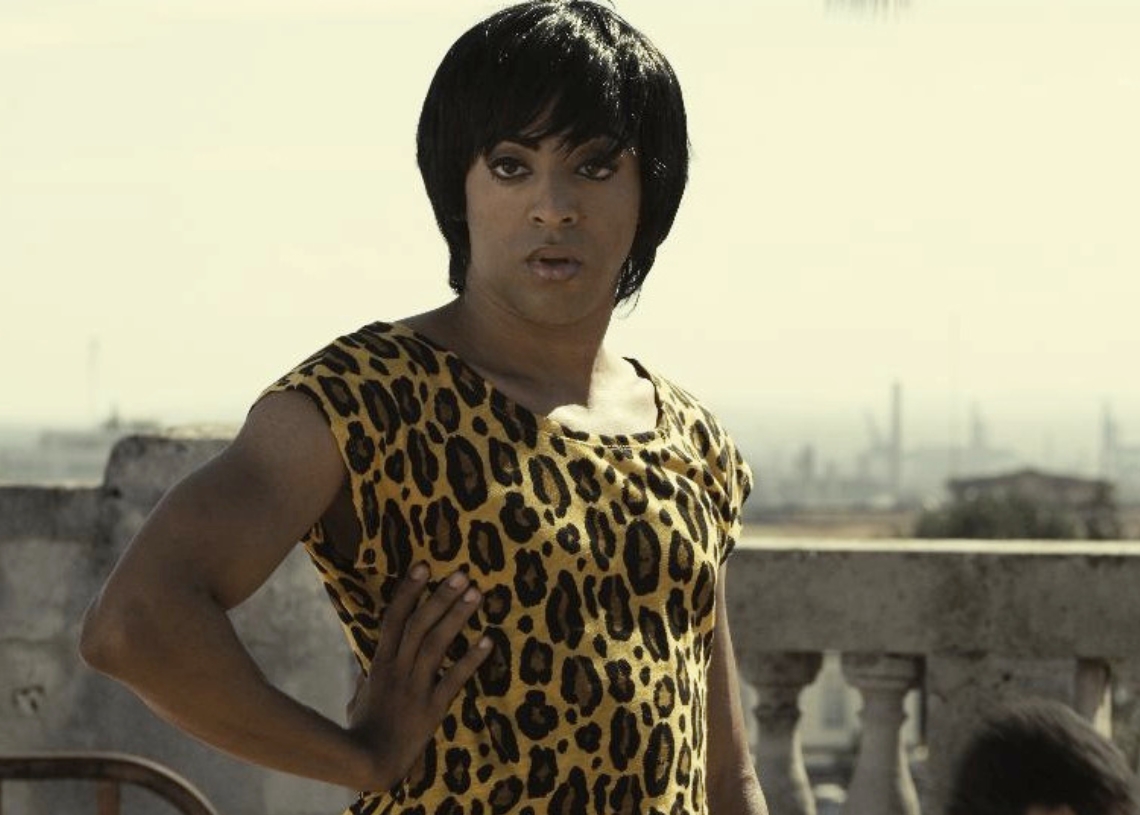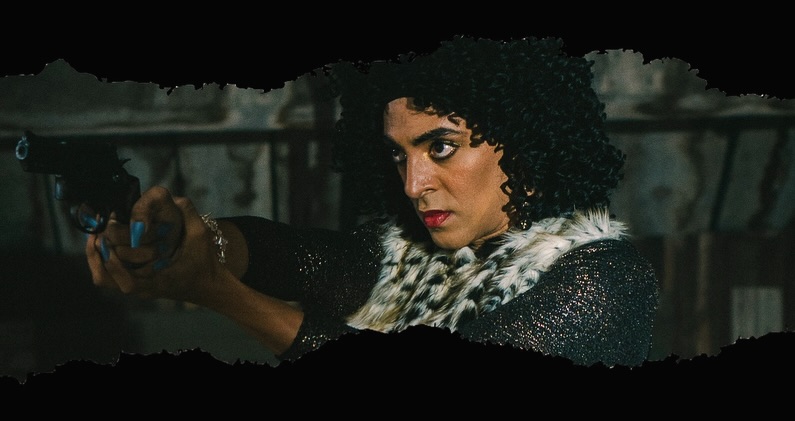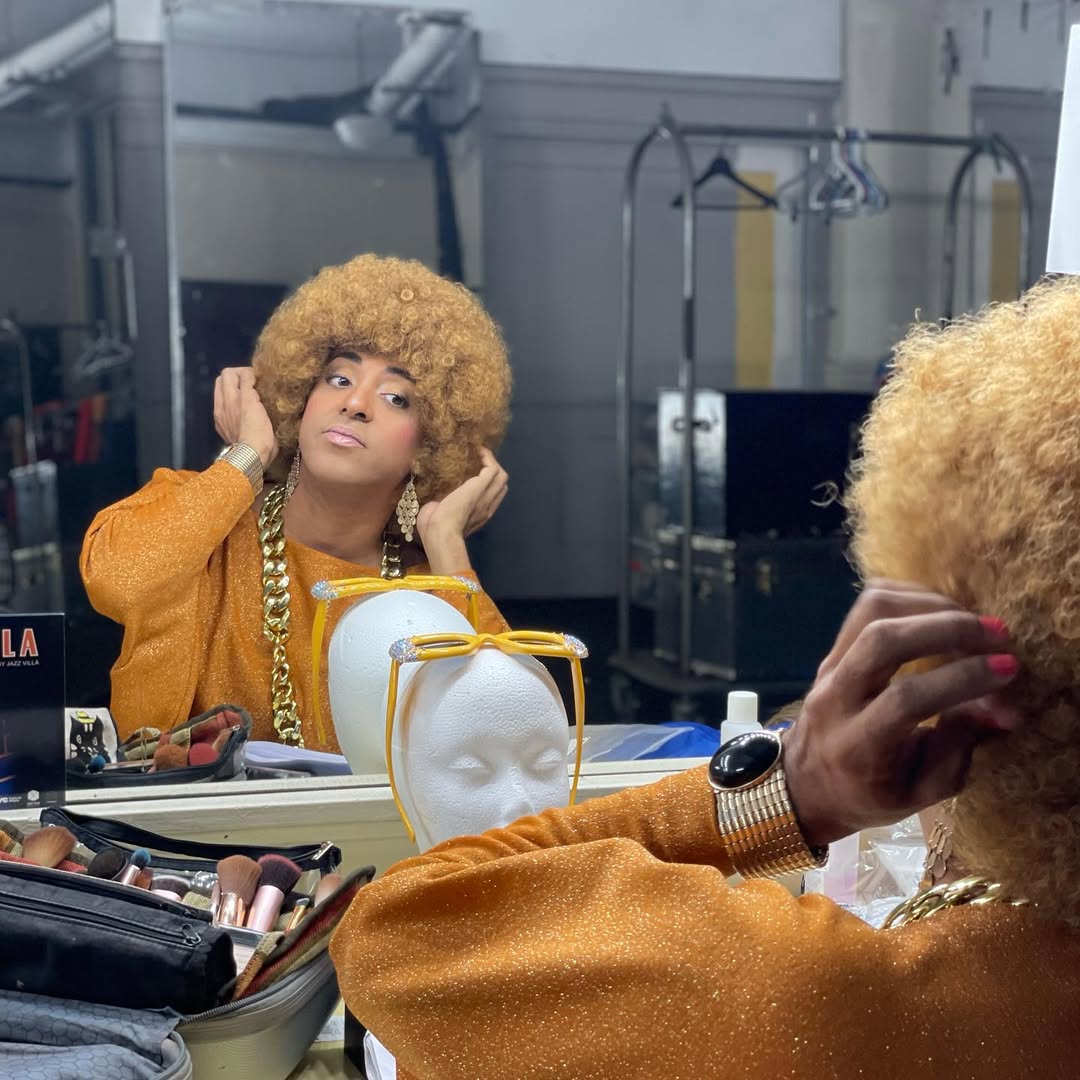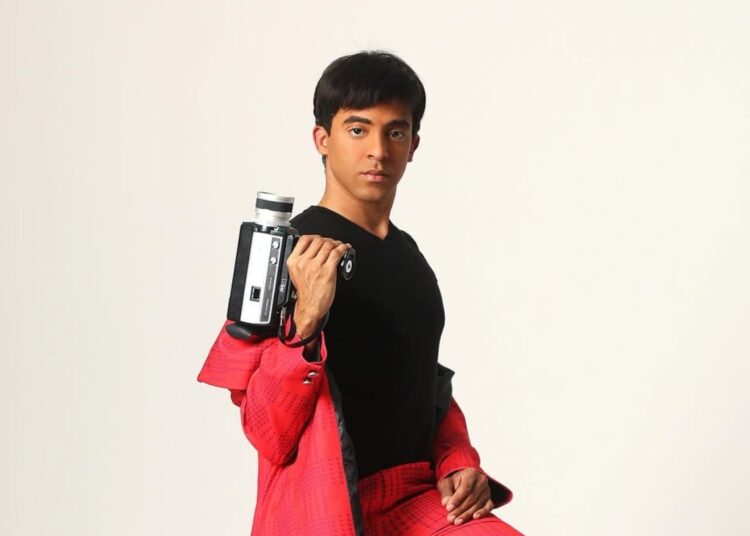Cuban actor, playwright, producer, and director Jazz Vilá (Havana, August 21, 1984) debuted in the soap opera Las huérfanas de la Obra Pía (2000). However, since the age of 14, he had been participating in an acting workshop based at the National Theater.
A 2004 graduate of the National School of Art (ENA), Jazz’s career spans from the small screen to theater and film. With international credits such as The Mick and the Trick (2024) and his cameo role in Alejandro Amenábar’s El cautivo (2025), the Cuban actor showcases his talent on stage and continues building his career.
Does a commendable national and international career guarantee an actor a steady stream of work?
Merit can certainly open many doors, but it doesn’t guarantee an actor will always have work. The entertainment industry is highly competitive and volatile, where factors such as market trends, the decisions of producers and directors, and the actor’s connection with the audience at any given time come into play.
Although a solid track record can provide more opportunities and acknowledgement, consistency in work also depends on an actor’s adaptability, ability to reinvent himself, and staying abreast of new projects emerging both in his country and globally.
Your performance in the film Juan de los muertos (2011) marked a turning point in your career. What did that role mean to you and how did it impact your development as an actor?
Juan… was a milestone in my career because it allowed me to explore an LGBTQ+ character in a unique context in Cuban cinema: the zombie genre. That role brought me closer to a wider audience, giving me the opportunity to showcase my Cuban identity through my lines and style.
The experience taught me about the importance of authenticity in acting and the power of humor as a tool to address profound issues. It was a role that left an indelible mark on my professional career.

How do you decide which projects to accept? What factors influence your choice?
Several factors influence this. First, the story and its emotional resonance are key; I look for scripts that inspire me and have a powerful message. I also assess the team behind the project, including the directors and other actors, as working with passionate people determines the quality of the product. Finally, the connection I feel with the character and the opportunity to explore its different nuances are decisive.
As the founder of Jazz Vilá Projects, what challenges have you faced leading a theater company? How do you define its success?
It has been an odyssey, with very joyful stages and others of great learning. Assembling a committed team that shares an artistic vision of success is always a difficult undertaking, which in recent times — and given the current conditions in Cuba — has become more complex.
Given this, my strategy has been adaptation. That has defined the company’s success, along with the ability to connect with the audience and generate an emotional impact on them.
What does Jazz Vilá Projects represent for your career?
It represents a creator’s commitment to his work. We artists may not change the world — that’s a utopia — but we do nourish the soul.

What is the greatest challenge of producing theater in the current context, both in Cuba and internationally?
Making theater is a challenge in itself, currently marked by economic and resource limitations in Cuba. The international situation, marked by geopolitical changes, also doesn’t facilitate the development of creative spaces. But theater also feeds on this; it’s part of its raison d’être. The challenge lies in maintaining the authenticity of our voices and traditions, while adapting to new forms of expression that resonate with audiences.
You have worked on Cuban and foreign productions. What differences do you find between the two experiences, and how have they enriched your artistic perspective?
Working on Cuban productions has given me a deep connection to my roots and an understanding of my country’s cultural context. These stories tend to be very local in their message and conception, a contrast to the foreign productions I’ve participated in. Both experiences, although different, have been enriching, as they have allowed me to combine the particularities of our culture with global influences. This has strengthened my artistic perspective and helped me express myself in a more universal way.
What role do you think acting and art in general play in different societies as a reflection of reality?
I firmly believe that acting and art are powerful tools for reflection and social transformation. These disciplines not only entertain but also raise awareness, shed light on issues and celebrate cultural diversity.
Through acting, we can connect with the emotions and experiences of others, which helps us better understand our shared realities. Acting has the power to challenge norms and offer new perspectives, becoming a mirror that reflects every stage of a society.

Your versatility as an actor, director, and producer is one of the characteristics that stands out throughout your professional career. How do you manage to balance these facets and keep your creativity fresh?
Balance is achieved through the passion and dedication I feel for each of them. Each role nourishes me and offers different perspectives that enrich my creativity. Versatility is essential, and I always seek new challenges and collaborations that allow me to explore different narratives. Keeping an open mind and being receptive to new ideas is key; this way, I can adapt my approaches and continue innovating in my projects, allowing each discipline to feed off each other.
Which character do you consider to have been the most challenging in your career, and what did you learn from it?
Each character offers a unique challenge because it represents a message for viewers. That’s why, given the circumstances of the project and the historical context of the film, Betty from Hotel Coppelia (2021) always comes to mind. Understanding a different era, sexuality, and society had to be approached with the utmost respect. This added to the emotional charge of playing this role; it left a profound mark on me.
Is there a theme or story you feel you haven’t yet addressed and would like to bring to the stage or the screen?
There are always stories that touch deeply and that I feel I haven’t yet addressed. I’d like to explore themes that reflect solutions, both in theater and film, and I hope to bring those voices to the stage and screen as a performer and director.
You were part of the cast of the Spanish musical comedy Mariliendre (2025), produced by Javier Calvo and Javier Ambrossi (Los Javis) and directed by Javier Ferreiro. Tell us about your experience performing in this Atresplayer production.
Performing in Mariliendre was an enriching and transformative experience for me. The work combines humor, music, and a profound reflection on identity and diversity, which connects with the audience in a unique way.
The series connects me a lot with the decade in which I lived and grew up in Spain, in Madrid itself. Therefore, it reunited me with many moments, melodies and people from my life, like the Javis themselves.
It’s been another of those gifts for which I say every day — and now musically, to align with the series — “Thank you to life, which has given me so much…”
How would you describe the representation of Cuban actors in the global industry?
Despite the barriers that may exist, many Cuban actors have managed to break through and stand out in international projects. From Sian Chiong in Mexico or Jacqueline Arenal in Colombia, to my great friend Ana de Armas, who made history at the Oscars and just received the Action Star of the Year award at CinemaCon.
These and other examples demonstrate how far we can go. Although there is still a long way to go to make our presence more prominent and diverse across all genres and platforms.










